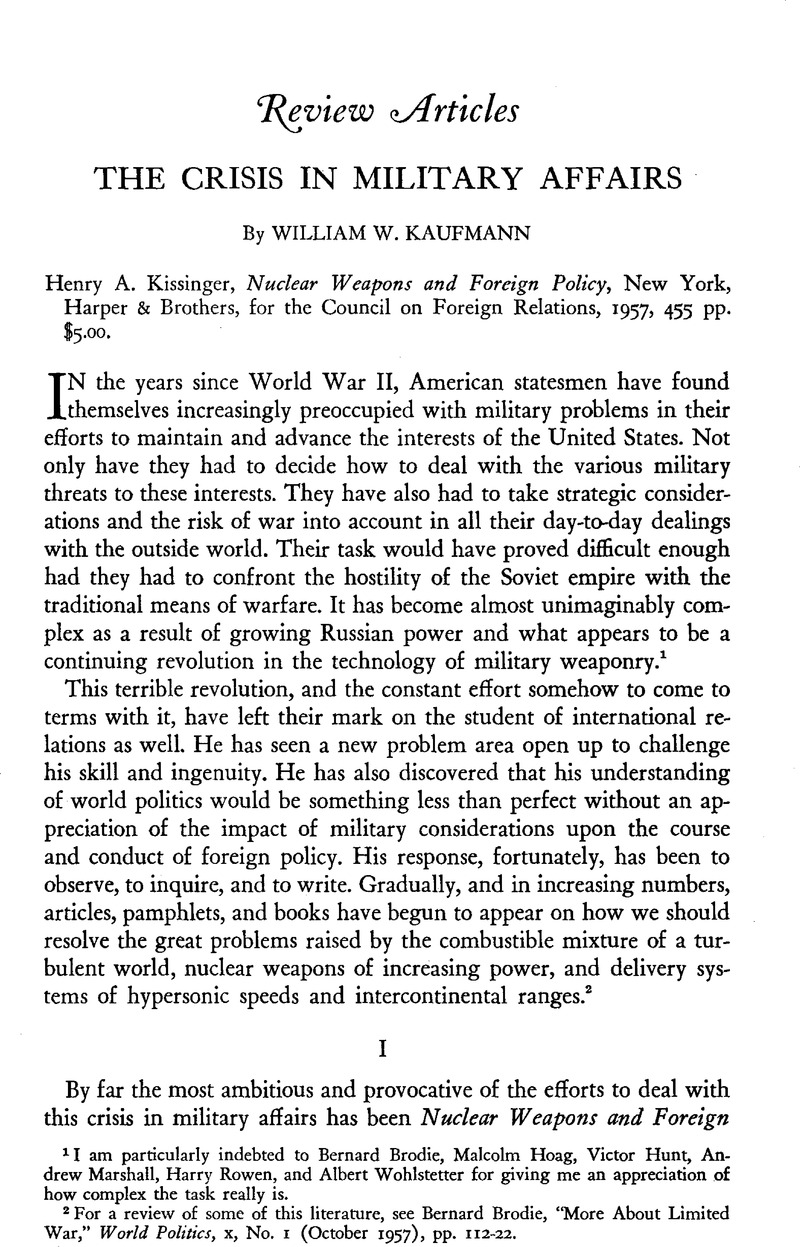Published online by Cambridge University Press: 18 July 2011

1 I am particularly indebted to Bernard Brodie, Malcolm Hoag, Victor Hunt, Andrew Marshall, Harry Rowen, and Albert Wohlstetter for giving me an appreciation of how complex the task really is.
2 For a review of some of this literature, see Brodie, Bernard, “More About Limited War,” World Politics, X, No. 1 (October 1957), pp. 112–22.CrossRefGoogle Scholar
3 Glasstone, Samuel, ed., The Effects of Nuclear Weapons, Washington, D.C., U.S. Government Printing Office, 1957.CrossRefGoogle Scholar
4 Nitze, Paul H., “Limited War or Massive Retaliation?” The Reporter, September 5, 1957, pp. 40–42.Google Scholar Mr. Kissinger informs me that this error was corrected after the first printing of the book.
5 See Study of Airpower, Hearings before the Subcommittee on the Air Force of the Committee on Armed Services, United States Senate, Washington, D.C., U.S. Government Printing Office, 1956.
6 See Dinerstein, Herbert S., “The Revolution in Soviet Strategic Thinking,” Foreign Affairs, XXXVI, No. 2 (January 1958), pp. 241–52.CrossRefGoogle Scholar
7 For a stimulating discussion of this problem in another context, see Schelling, Thomas C., “An Essay on Bargaining,” American Economic Review, XLVI, No. 3 (June 1956), pp. 281–306.Google Scholar
8 For a different estimate of the possibilities of disarmament, see Leghorn, Richard S., “How the Arms Race Can Be Checked,” The Reporter, March 6, 1958, pp. 16–20.Google Scholar